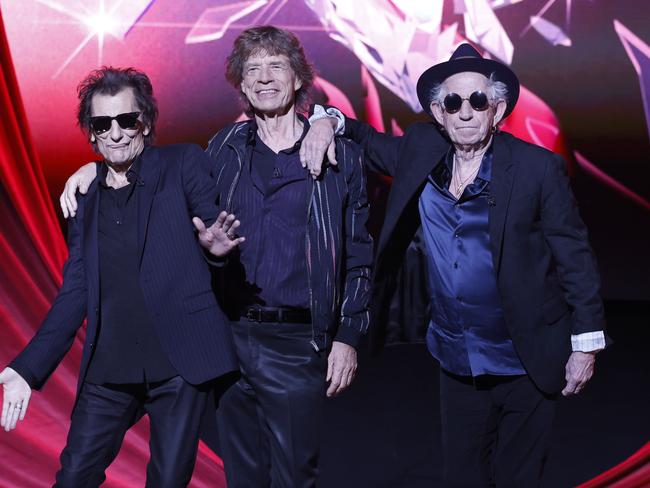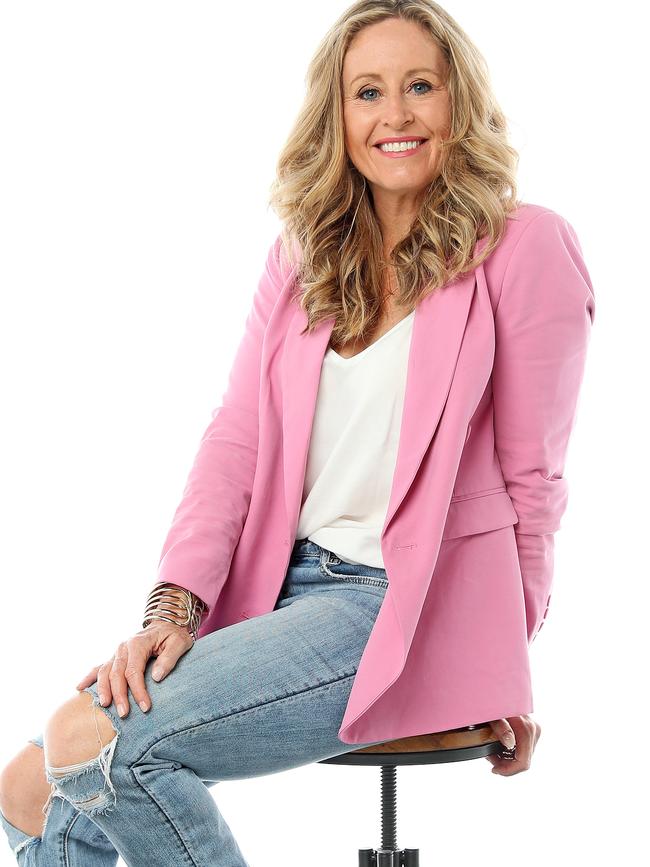Angela Mollard: Why phone calls matter in the age of texts, DMs and WhatsApp
Technology may have made our lives easier in multiple ways but when it erases some of the practices which actually help us and make us human we’d do well to reconsider, writes Angela Mollard.
Opinion
Don't miss out on the headlines from Opinion. Followed categories will be added to My News.
For an ageing rocker keen on recording a new album, it would appear there are challenges beyond hearing impairment and an inability to tolerate the hard drugs which once kept you upright on stage and partying until dawn.
Rather the real issue with getting the band back together is glancing around and realising you are one man down.
It’s unclear whether the Rolling Stones felt uncomfortable as a threesome or they’re softening in old age, but when they decided to make an album in tribute to their late drummer Charlie Watts they invited former bassist Bill Wyman to join them. As Mick Jagger tells it, he simply picked up the phone to Wyman, who’d left the band 30 years earlier, reportedly due to mutual accusations of being “boring”.
“Are you still playing, Bill?” he asked. To which Bill replied: “Of course I am.” That was all it took. Four old blokes – combined age 321 – were back in tune.

Thank goodness for telephones which, when used in their traditional manner, have always been a means to rapprochement. “Picking up the phone” may have been superseded by texting, WhatsApp and DMs but nothing can compare to a real voice when it comes to saying sorry or ending an impasse.
There is courage in a phone call that goes beyond a willingness to let bygones be bygones. In dialling someone’s number you are taking the chance that you may not be welcomed. That’s the risk. But it’s also the grand possibility. Because if the recipient of said call is sufficiently evolved to recognise that the caller has taken that chance, they’re more likely to both pick up and be open to the conversation that ensues.
All of us who grew up using telephones for their original purpose know this. We know that if you genuinely want to heal a relationship only a letter or a phone call will do, which is why I fear for younger generations who are terrified of speaking on the phone.
Research last month shows that 90 per cent of Gen Z are anxious about making phone calls and some say an awkward phone call is one of the top three things they want to avoid in life.

When we recently discussed this phone phobia on The Morning Show on Channel 7 my fellow panellist admitted his wife was so nervous about making a phone call she couldn’t even call to order a pizza. There would be no quattro formaggi in his house if it was left to his wife.
Technology may have made our lives easier in multiple ways but when it erases some of the practices which actually help us and make us human we’d do well to reconsider. For a time in their early teens, my daughters loathed speaking to people in shops because they were so used to communicating via text and shopping online. Noting their apprehension I created opportunities – largely when I was driving – for them to pop out of the car and either buy something or acquire information. They didn’t like it but it solved the problem.
A friend told me this week how she was inclined to let a longstanding connection slide into oblivion after being insulted by a colleague-turned-friend at a work event. My friend refused to answer the phone to this person for several weeks but after speaking to others she learned a little more of what was going on behind the scenes and picked up the phone. As she says: “It was the right thing to do. It gave her the opportunity to apologise wholeheartedly and I gained some appreciation for the factors that had led her to be rude.”
While a text, with its lack of nuance and tone, is given to misunderstandings, the warmth, tenor and apprehension in a phone call can transmit so much more than just words. Certainly, a plaintive phone call is hard to turn down. Live Aid might never have happened in 1985 if Bob Geldof had not picked up the phone to a constellation of artists and persuaded them to get on board with his campaign to raise money and awareness of the drought in Ethiopia.
This week I’m in London and have just seen the brilliant Abba Voyage show which has brought the Swedish band back to life via the use of holograms. It was a mesmeric evening, not just for fans, but for the foursome who continue to make people happy nearly half a century after they won the Eurovision Song Contest with Waterloo.
Had Benny Andersson and Bjorn Ulvaeus not picked up the phone to “the girls” – Agnetha Faltskog and Anni-Frid Lyngstad – it might never have happened. The pair were on-board but with some provisos. “We don’t want to go on the road,” they said. “We don’t want to do TV interviews and meet journalists”.
What that phone call gave them, as Lyngstad says during the show, was an opportunity “to begin their lives again”. All of us might benefit from that original message from Abba: “Ring, ring, give me a call.”




